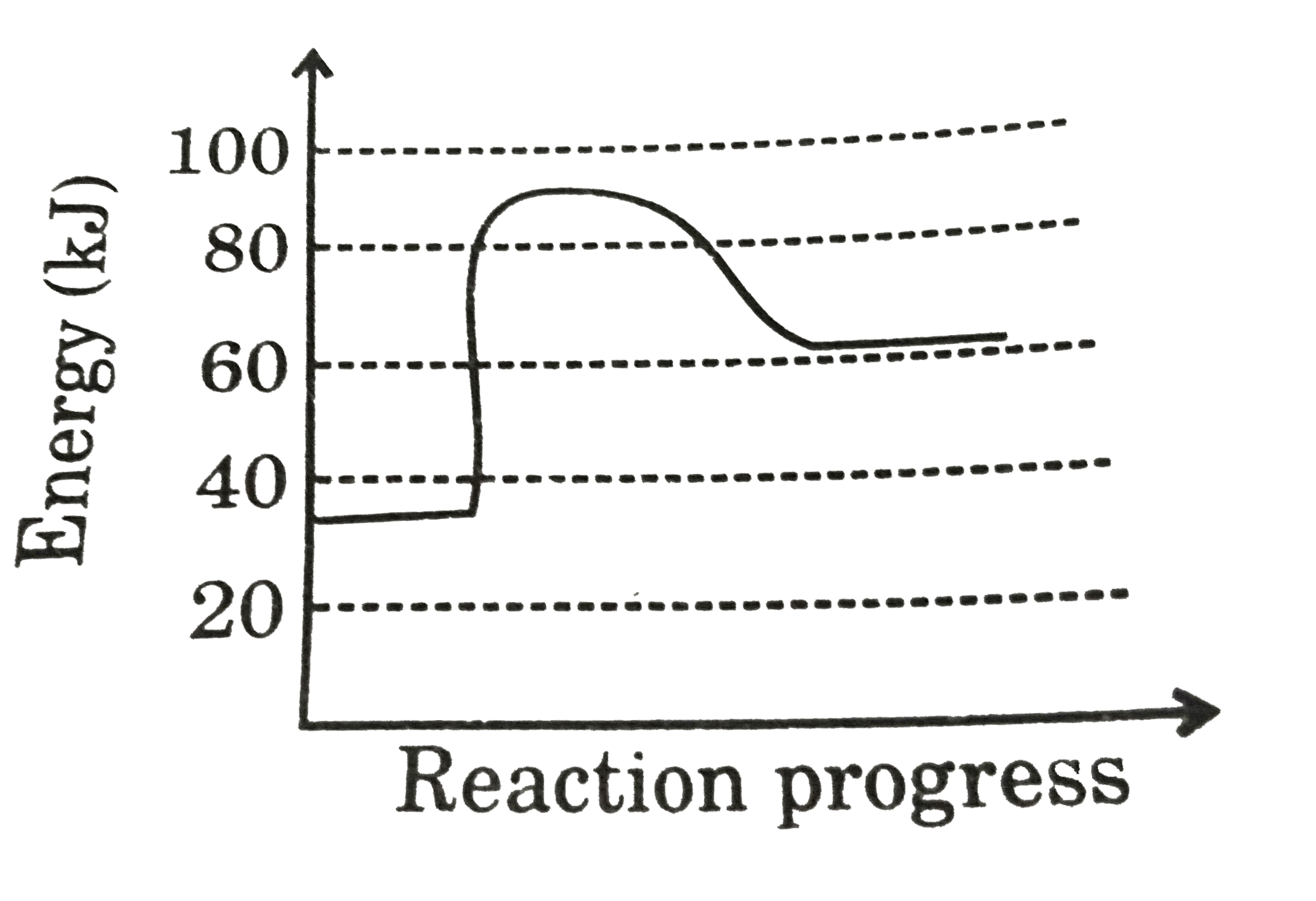A reaction A+B→C+D+q is found to have a positive entropy change, the reaction will be:
possible at high temperature
possible only at low temperature
not possible at any temperature
possible at any temperature
For a ractions to be spontaneous, ΔG should be negative.
ΔG=ΔH−ΔS
According to the question, for the given, reaction,
ΔS= positive
ΔH =negative (since heat is evolved)
⇒ΔD= negative
Therefore, the reactions is spontaneous at any temperature.
Hence, alternative (iv) is correct.
Topper's Solved these Questions
Similar Questions
A reaction, A+B→C+D+q is found to havea positive entropy change. The reaction will be
(i) possible at high temperature (ii) possible only at low temperature
(iii) not possible at any temperature (iv) possible at any temperature
View SolutionAdjoining diagram, represents the energy profile for the reaction : A+B→C+D. What is the valye of the activation energy for the reaction ? C+D→A+B ?

View Solution
Knowledge Check
If an endothermic reaction is found to have +ve entropy change, then the reaction will be:
APossible only at low temperatureBPossible at any temperatureCPossible at high temperatureDNot possible at any temperatureAn exothermic reaction has a large positive entropy change. The reaction will be -
APossible → Spontaneous at all temperaturesBPossible → Spontaneous at low temperatures onlyCImpossible → Non-spontaneous at all temperaturesDPossible → Spontaneous at high temperatures onlyEntropy will not change for the reaction
ACrystallization of sucrose from the solutionBCorrosion of ironCConversion of ice into waterDVaporisation of Camphor
ΔG is the net energy available to do useful work and is a measure of free energy. If a reaction has positive enthalpy change and positive entropy change, under what conditions will the reaction be spontaneous?
View SolutionFor the reaction A+B→C, it is found that doubling the concentration of A increases the rate by 4 times, and doubling the concentration of B doubles the reaction rate. What is the overall order of the reaction ?
View SolutionIn a reaction P+Q→R+S, there is no change in entropy, Enthalpy change for the reaction (ΔH) is 12 kJ mol−1. Under what conditions, reaction will have negative value of free energy change?
View SolutionFor the reaction, 2A+B→3C+D, which of the following does not express the reaction rate
View SolutionIn the reaction A+B→C+D, the concentration of A and B are equal and the rate of the reaction is rate =k[A][B]. The integrated rate equation for this reaction is
View Solution

